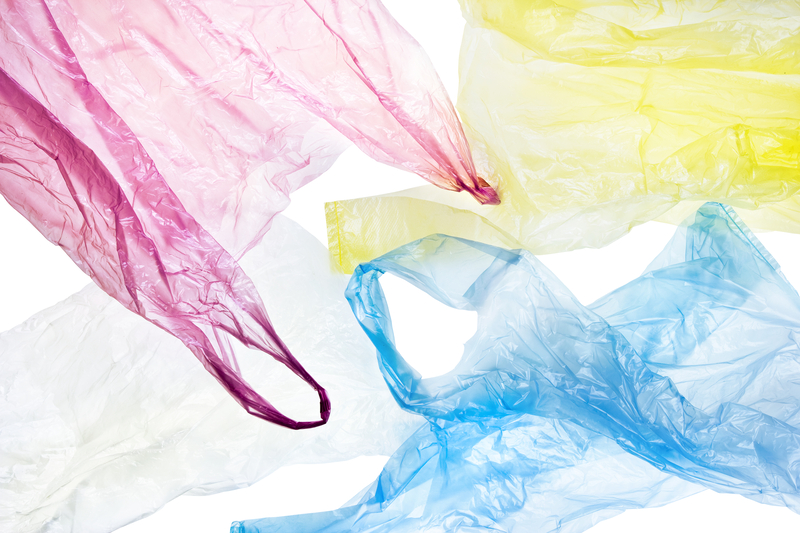Eco-Friendly Options for Disposing of Unusable Cookware
Unusable cookware can pile up in our homes, from scratched nonstick pans to warped pots and cracked glass bakeware. But what should you do with these items when they've outlived their usefulness? Simply tossing them in the trash harms the environment. Fortunately, there are eco-friendly options for disposing of unusable cookware that can reduce waste, conserve resources, and even benefit your community. In this comprehensive guide, we'll explore sustainable methods and creative solutions to help you manage kitchen clutter responsibly while protecting the planet.

Why Eco-Conscious Disposal Matters
Traditional cookware is often made from a variety of materials including aluminum, stainless steel, copper, glass, ceramic, and nonstick coatings. When cookware is improperly disposed of in landfill sites, it can take hundreds of years to break down. Some materials may release toxins, while others waste valuable resources that could otherwise be recycled or repurposed.
- Landfills: Overcrowded landfills contribute to soil and water contamination.
- Wasted Resources: Metals and other materials are often recyclable or reusable.
- Carbon Footprint: Manufacturing new cookware uses significant energy and raw materials.
Choosing eco-friendly cookware disposal methods helps conserve resources, minimizes pollution, and supports a circular economy.
Understanding Your Cookware Materials
Before considering your eco-friendly cookware disposal options, it's essential to identify what your items are made from. Here are some common materials found in kitchenware:
- Stainless Steel: Durable, fully recyclable, and valuable as scrap metal.
- Aluminum: Lightweight, popular in cookware; can usually be recycled if clean of coatings.
- Copper: Highly sought after by scrap-metal dealers, often used in higher-end cookware.
- Cast Iron: Extremely durable; can be recycled or repurposed.
- Nonstick/ Teflon: Composed of various metals with a synthetic coating. Trickier to recycle and potentially harmful if overheated.
- Ceramic & Glass: Not always accepted in curbside recycling due to how they're processed.
Eco-Friendly Ways to Dispose of Unusable Cookware
1. Donate or Gift If Still Usable
Before discarding cookware, consider if it could still serve someone else. Charitable organizations, thrift shops, shelters, and community centers may accept gently used pots and pans. Ask family, friends, or neighbors if they could benefit from your unwanted kitchen items.
- Charities: Goodwill, Salvation Army, Habitat for Humanity ReStores.
- Community Centers: Schools, churches, food charities may need spare cookware for their kitchens or food drives.
- Online Platforms: Use apps or websites such as Freecycle, Facebook Marketplace, or Craigslist to give away your items locally.
Note: This option only works for cookware that is safe and usable. Severely warped, chipped, or damaged items may not be suitable for donation.
2. Recycling Cookware the Right Way
If your cookware is no longer usable, recycling is often the best eco-friendly disposal method. Here's how to approach different materials:
Metal Cookware (Stainless Steel, Aluminum, Copper, Cast Iron)
- Scrap Metal Yards: Most metal cookware can be taken to a local scrap yard. Remove plastic or wood handles, and any non-metal parts.
- Check With Your Curbside Recycling: Some municipalities accept pots and pans in regular curbside recycling, provided they're clean and made entirely of metal. Contact your local recycling authority for specifics.
- Special Metal Events: Communities sometimes hold metal recycling drives for large or unusual items.
Tip: Separate metals if possible. For instance, a pan with a copper bottom and steel sides may fetch a higher price if dismantled.
Glass and Ceramic Cookware
- Not Curbside-Recyclable: Most kitchen glass (like Pyrex) and ceramics can't be mixed with standard glass recycling due to different chemical compositions.
- Special Facilities: Research local recycling facilities--some accept heat-resistant kitchen glass and ceramics.
- Repurpose: Broken ceramics and glass can be used in craft projects or as drainage material at the bottom of plant pots.
Nonstick or Teflon-Coated Cookware
- Check with Manufacturer: Some brands (including Calphalon and GreenPan) offer take-back or recycling programs for nonstick cookware.
- Specialty Recycling: Facilities accepting nonstick pans are rare, but some scrap yards will accept them if the coating is not an issue.
- Never Burn or Incinerate: Damaged nonstick coatings can release toxic fumes. Do not attempt to incinerate these items.
3. Manufacturer Recycling and Take-Back Programs
A growing number of cookware manufacturers are addressing sustainability by offering eco-friendly disposal programs. These programs allow you to send back old pots and pans regardless of brand, keeping them out of landfills.
- Calphalon Take-Back: Calphalon accepts any brand of metal-based cookware. Ship your old pieces and they'll handle recycling.
- GreenPan Recycling: GreenPan's initiative recycles nonstick and ceramic pans from any brand. Check their website for details.
- Other Brands: Check your manufacturer's website for similar options, especially if you're replacing old cookware with new purchases from them.
Tip: Some companies may offer a discount for recycling your old cookware when you purchase new items.
4. Creative Upcycling and Repurposing
Don't overlook the creative potential of unusable cookware. Upcycling is a fun and environmentally conscious way to give old kitchenware a second life. Here are just a few ideas:
- Garden Planters: Use old saucepans, Dutch ovens, or colanders as quirky planters for herbs and flowers. Drill extra drainage holes if needed.
- Storage Solutions: Repurpose pots or pans as organizers for craft supplies, cutlery, or hardware in your garage or workshop.
- Baking Pan Wall Art: Arrange different sizes and shapes of pans to create a unique kitchen feature wall.
- Bird Feeders or Baths: Large pans make creative and functional outdoor bird feeders or bird baths.
- Clocks & Lamps: Turn woks or frying pans into statement wall clocks or pendant lamps.
Upcycling reduces landfill waste and injects personality into your home or garden design.
5. Responsible Waste Disposal
If none of the above eco-friendly cookware disposal options work for your situation, you may have to use traditional waste streams. However, always try to minimize your environmental impact:
- Break Down Items: Disassemble where possible to minimize space.
- Check Local Rules: Some municipalities have special drop-off days for bulky items or offer hazardous waste collection for certain coated cookware.
- Minimize Landfill Use: Only use as a last resort after other options have been exhausted.
How to Choose the Most Sustainable Option
When deciding how to dispose of old cookware, assess these factors for the greenest outcome:
- Condition: Is it safe and functional enough to donate or sell?
- Material: Metals are generally more recyclable than ceramics or plastics.
- Local Programs: Investigate recycling, upcycling, and reuse opportunities in your area.
- Company Initiatives: Take advantage of manufacturers' eco-friendly cookware disposal schemes.
- Creativity: Can it be repurposed for a new role in your home or garden?
Tips for Reducing Future Cookware Waste
Cutting down on future kitchen waste starts with making sustainable choices when purchasing new cookware:
- Choose Durable Materials: Stainless steel, cast iron, and certain ceramics outlast cheaper alternatives.
- Buy Secondhand: Gently used cookware saves money and reduces demand for new manufacturing.
- Repair When Possible: Many issues, including loose handles or mild rust, can be fixed at home.
- Select Recyclable Items: Research whether the cookware can be recycled at end of life before buying.
- Avoid Cheap Nonstick: Low-quality nonstick pans often have a short life span; invest in higher-quality or alternative coatings.
Smart consumer choices help minimize kitchen clutter and lower your overall environmental footprint.

Frequently Asked Questions (FAQs) About Eco-Friendly Cookware Disposal
Can I recycle all types of cookware in my blue bin?
Usually not. Most curbside programs only accept certain metals and never nonstick-coated, ceramic, or glass cookware. Always double-check your local guidelines.
Are there any health hazards with old nonstick pans?
Old or heavily scratched nonstick cookware can release harmful particles and fumes. Dispose of these responsibly, and never incinerate them.
What if scrap yards or recycling centers won't take my pots and pans?
Look for manufacturer recycling programs or try creative upcycling. As a last resort, dispose of cookware via your municipal solid waste stream during permitted collection days.
Can I mix different types of metals when recycling cookware?
Yes, but separating metals by type (steel, aluminum, copper) may increase scrap value and recycling efficiency. Remove and separate non-metal and composite pieces for best results.
Conclusion: Making Eco-Friendly Cookware Disposal Part of Your Routine
Responsible, sustainable disposal of unusable pots, pans, and bakeware is a small but impactful step toward a healthier planet. With so many eco-friendly options for cookware disposal--from recycling to upcycling--you can help conserve resources, reduce pollution, and start new creative projects. Whenever possible, choose greener alternatives at purchase, maintain your cookware for longevity, and educate others on proper disposal methods. Every effort counts toward a more sustainable kitchen and world.
Embrace eco-friendly cookware recycling and disposal techniques and become a champion for zero-waste living--one saucepan at a time!
